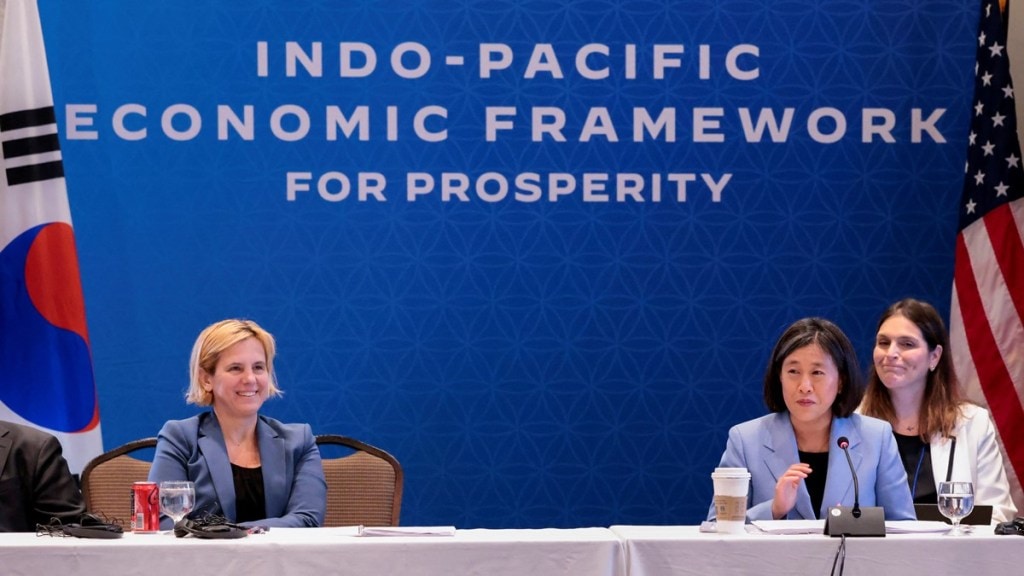After signing on the Supply Chain Resilience agreement, the 14-member Indo-Pacific Economic Framework for Prosperity (IPEF) has announced “substantial conclusion” of negotiations on agreements on fair economy and clean economy.
Apart from reaching agreement on the two, the members also made considerable progress on the Agreement on the Indo-Pacific Economic Framework for Prosperity at the IPEF ministerial meeting in San Francisco in the US, according to a joint statement.
“The IPEF partners will now undertake the necessary steps, including further domestic consultations and a legal review, to prepare final texts of the three proposed agreements,” the statement added.
Along with India, other members of the IPEF are Australia, Brunei Darussalam, Fiji, Indonesia, Japan, Republic of Korea, Malaysia, New Zealand, Philippines, Singapore, Thailand, the United States, and Viet Nam. Together they account for 40% of the world’s economic output and 28% of world trade.
Negotiations at IPEF are centred around 4 pillars. With the supply chain agreement signed and talks of clean economy and fair economy nearing conclusion, only work on the trade pillar of the agreement is left.
India has not joined the trade talks till now but attends the meetings of negotiators as an observer.
Clean economy pillar covers issues critical to transitions to clean economies, including efforts towards energy security and transition, climate resilience and adaptation, greenhouse gas emissions mitigation, and the promotion of sustainable livelihoods and just transition.
With this agreement the partners have agreed to accelerate the research, development, commercialization, availability, accessibility, affordability, and deployment of a diverse set of clean energy and climate friendly technologies.
Other components of the clean economy agreement are decarbonising and reducing the climate impact of the transportation sector, securing critical minerals and inputs for clean energy technologies. It also calls on the members to advance sustainable agricultural practices, and conserve and restore forests.
The IPEF partners also seek to increase investment flows to the region to address the acute need for financing for climate-related infrastructure, technologies, and projects in support of their transitions to clean economies.
Under the IPEF Fair Economy Agreement, the IPEF partners are committed to working together to enhance fairness, inclusiveness, transparency, the rule of law, and accountability in their economies to improve the trade and investment environment in the Indo-Pacific region.
To achieve goals of fair economy, IPEF partners would work together to enhance their efforts to prevent and combat corruption including bribery, and support efforts to improve tax transparency and the exchange of information, domestic resource mobilisation, and tax administration.
The IPEF partners announced the substantial conclusion of the negotiations on the proposed Agreement on the Indo-Pacific Economic Framework for Prosperity to establish an IPEF Council and Joint Commission.

